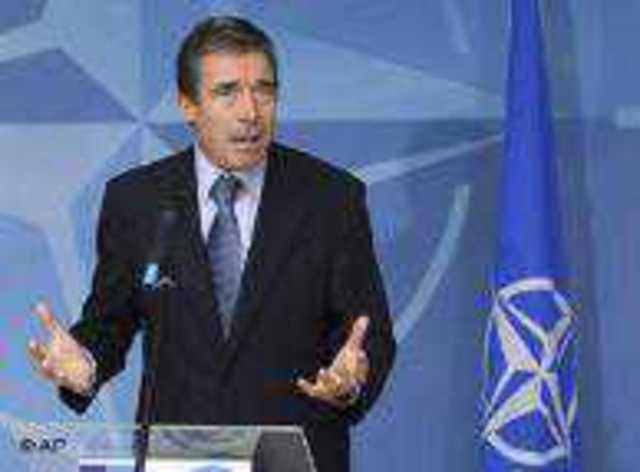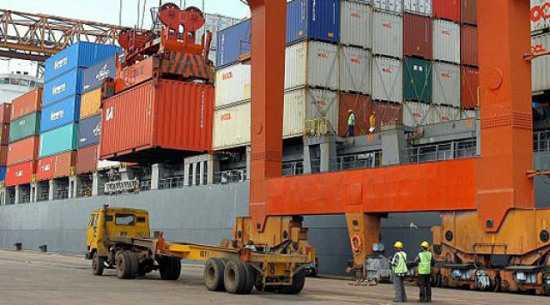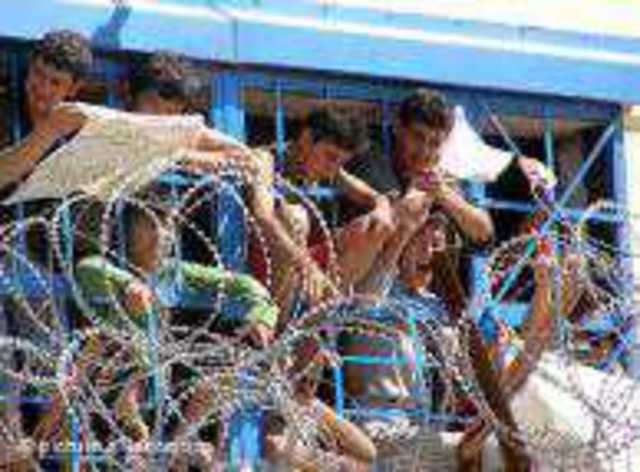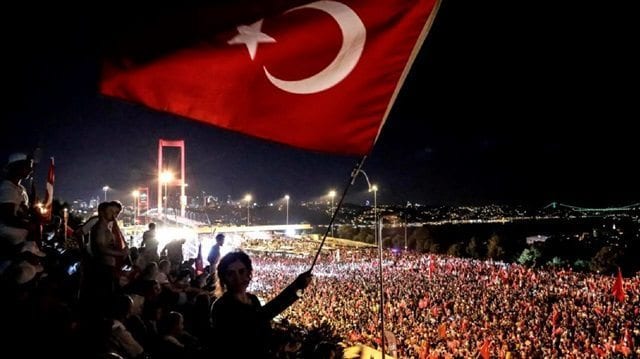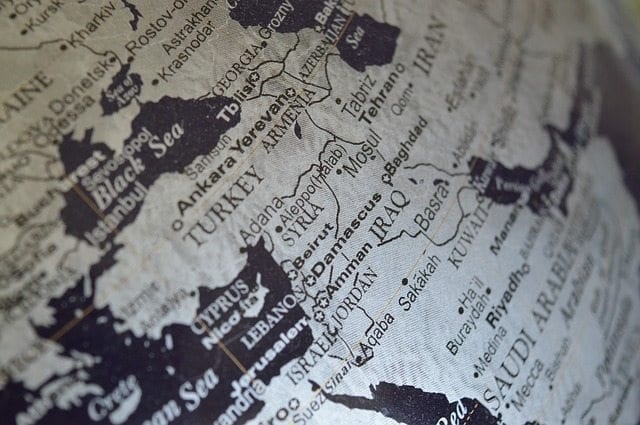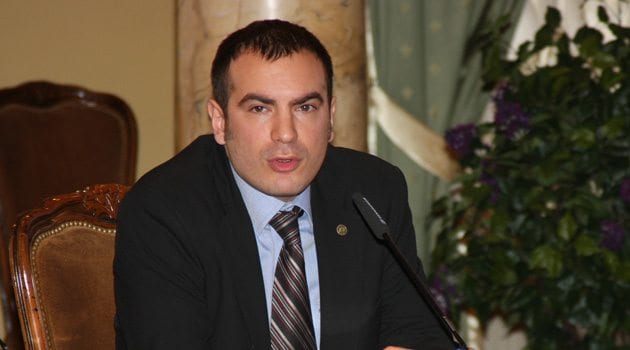Why should Turkey buy the S-400 and have an armed system independent from the USA?
Turkish-American relations have never been in such a crisis. The causes of this crisis are clear:
– US support for Kurdish separatists and its plan for a great Kurdistan.
– The role of Washington in the attempted coup on June 15, 2016 and the use of US Gulenist against Turkey.
– Trump’s announcement of an economic war against Turkey.
Facing threats from the United States, to ensure their national security, Turkey began to look for alternative armed systems. Although Turkey is a member of NATO, it has become a target of Washington. Because of this, firstly the Americans stopped supplying the necessary weapons, secondly the armed systems dependent on the USA did not meet the needs of present times.
In this regard, Turkey decided to buy the Russian anti-aircraft missile system S-400, which annoyed Washington very much, and the crisis between the two countries has grown. Even Trump’s administration saw this purchase as a betrayal and has threatened Ankara several times.
On this issue, we reached out to Turkish political scientists and military experts to discuss the S-400 crisis with them and the actual needs of the Turkish Army for its armed system.
“INCREDIBLE DEGREE OF MISTRUST BETWEEN US AND TURKEY”
Commenting on Turkish-American relations for USA Really, Prof. Dr. Hasan Ünal, an expert on Turkish foreign policy, pointed out that there has been a security and political dimension all along:
“There has been an incredible degree of mistrust between the two NATO allies. The US’s efforts to carve out a Greater Kurdistan in the Middle East of Iraq, Syria in particular, and Turkey, linking it through a corridor to the Eastern Mediterranean is certainly a very disturbing element in US-Turkish relations from Ankara’s point of view. Notorious US efforts to bolster up the PYD in Syria, for example, despite repeated warnings from Ankara, have fostered this mistrust to a considerable degree. Ankara does not presumably think that it is going to have to encounter Russia or any Russia-backed force in the foreseeable future in this part of the world.”
“TURKEY WILL NOT CHANGE ITS MIND”
On the other hand, everyone is wondering if these threats of sanctions repeatedly pronounced by US officials about the purchase of the S-400 air defense systems from Russia will scare off Turkey. Prof. Ünal emphasizes that Turkey’s decisions are already determined by the needs of the country, and not by threats from the Atlantic:
“I would say that it is less likely than otherwise that these threats are going to make Turkey give up. To put it into some perspective, Turkey desperately needs air defense systems. It would like to buy and jointly produce these systems together with Russia, and Russia’s agreement to sell these sophisticated weapons and to produce them together with Turkey at a later stage is an important inducement. Secondly, and perhaps more importantly, Turkey had earlier approached the US with a view to buying them from it but it had been turned down by Washington. The US not only did not want to sell its Patriot missiles, which are not as effective as the S-400s, but it also did not agree with Turkey’s offer of co-production, let alone transfer the technology to Turkey. After Turkey made a deal with Russia about the purchase of the S-400s, the US appears to be more than willing to sell the Patriots but I suppose that it is too late.”
WHAT CHARACTERIZES S-400s AS COMPARED OTHER AIR DEFENSE SYSTEMS
After Prof. Unal explained the geopolitical reasons for purchasing the S-400s, we asked Beyazıt Karataş, the retired Air Force Major General (TUAF), the following question: Is the S-400 responsive to Turkey’s military needs? First he said that the most important indicator for NATO and the West is their opposition to Turkey’s territorial integrity; In this case, it is necessary to question the relations of alliance with these simple facts and take measures accordingly. Then, he told us about the characterization of S-400s as compared to other air defense systems:
“The S-400 Long Range High Altitude Air Defense System has properties two to five times better when compared to other long-range high-altitude air defense systems in terms of their ability, as shown in the table.”
ARE THE S-400s DANGEROUS FOR NATO?
Having found such an expert, it was imperative to find out whether the S-400 was a danger for NATO, as Washington said it is:
“The S-400 is an air defense system and not an attack weapon. In particular, Turkey, having felt the lack of a long-range system since the 1990s will fill an important gap in its high-altitude air defense system. Very clearly ‘our country, our motherland’ will constitute a threat and it will be used against enemy attacks. This means that it is a system to be used against threats from an enemy country, as it is raised most, not directly against NATO, but from the air, whether it is coming from a NATO member or any country.”
“S-400s ARE ENOUGH FOR TURKEY’S DEFENSE”
Then the conversation with Major General Beyazıt Karataş came to the most important point: Are the S-400s enough for Turkey’s defense?:
“There will never be an air defense system alone. Because every air defense system itself needs air defense protection. In contrast, in the S-400 contract with Turkey, Russia will provide a significant deterrence for the protection of our airspace.
The S-400s will enter our inventory in the 2019-2020 year, according to the agreements to be made to produce our future long-range high-altitude national air defense system. Turkey will make an important contribution to the experience and Turkey-Russian political relations, the military, the defense industry, and the economic dimension will contribute to this development.
As a result, the US and NATO are still hoping that the S-400 agreement will be canceled, as happened with China. The US is putting all sorts of pressure and blocking against Turkey and threatening not to provide F-35 aircrafts if Turkey buys the S-400. It is seen that the US will continue these threats and blackmail until the end. The implementation of the agreement signed on the supply of Russia’s S-400, for safety, also holds great importance in terms of cooperation with neighbouring countries and prestige in the international arena.”
“THE F-35 SYSTEM WILL DAMAGE TURKEY IN TWO WAYS”
On Turkey’s agenda there is not only the purchase of the S-400s, but American F-35s are also being discussed. Major General Karataş considers the F-35s very dangerous for Turkish defense. According to Karataş, in case of a possible war with the US, Turkey could lose control of these fighters. He says that Turkey has other reliable alternatives:
“As it’s known, in January 2019, US President Donald Trump signed the 2019 year budget, and according to the relevant clauses contained in it, if Turkey buys S-400s from Russia, they will prevent the delivery of F-35 aircraft, sa they have repeated in every platform and continues to repeat.
Meanwhile, the Trump administration will try to compensate for possible radical steps regarding Turkey as Congress has done so far. Indeed, in the case of the S-400 coming to Turkey, Congress would not execute the Countering America’s Adversaries Through Sanctions Act (CAATSA)–the US State Department would decide. Of course, the State Department will have to move with instructions from Trump. However, Trump may not be able to bypass the Congress in these processes.
Technical characteristics of the F-35 aircraft include invisibility, a combination of antennas, sensors and cryptographic links to enable NATO to operate jointly, to transfer information to land maritime and other elements. These features can create the perception of “perfect planes.” But from the national logistics point of view, as particularly important considering the problems experienced between Turkey and the US, the F-35 will be out of Turkey’s control. The F-35 system will damage Turkey in two ways.
The first is the Autonomic Logistics Information System (ALIS) and the second Performance Based Logistics (PBL). You are now procuring services from a US company and transferring logistics planning to the US nationally. For example, you want your 25 planes to be active. Under the agreement with Lockheed Martin, the parent company of the F-35s, the company manages this system to provide the activities of these aircraft to keep 25 active. So you can’t manage the activity of your own aircraft. You cannot manage your own logistics system according to the old national system. Yes, this method is economically good, but Turkey-US relations are not as they used to be.
As a result, the US does not give the F-35s to do Turkey a great favor. Because of Turkey’s decision on F-35s, the Air Force will make Turkey 100 percent dependent on the US. This will prevent the development of our national aircraft. While the Turkish Air Force has already been tied to the US by 90-95 percent, it should be lowered. The F-35’s polished, exaggerated charm to be in the US’s orbit will make you 100 percent dependent on the US.
If Turkey does not buy the F-35 aircraft, it won’t be the end of the world. Turkish-Russian military relations are not limited to the intake of air defense missiles, they are also increasing cooperation in space with the production of joint combat aircraft (TF-X), which should be among the priority targets. We can also say that the chance to develop new collaborations outside the US and NATO is now much more important and this is the exactly what the US fears.”
“A NEW ERA IN RUSSIAN-TURKISH MILITARY RELATIONS”
All our interlocutors emphasized the importance and necessity of an armed system independent from the United States. According to the Turkish political scientist Prof. Ünal, since it’s admission, Turkey has learned to develop some sort of an independent security policy for itself. He recalled that initially in the 1950s and early 1960s, it was perhaps like a US/NATO garrison in the Middle East and the Balkans and after the arrival of the infamous Johnson Letter in Ankara, in the summer of 1964, Turkey certainly moulded an independent foreign policy, though it remained in NATO:
“It was after this 1964 policy re-evaluation that Turkey began to cultivate the best possible relations with the Soviet Union, a period that continued right up to the 1980s and even after. During these years, Turkey and the Soviet Union were on the best possible terms on trade and economy and, short of cooperating in security matters, they cultivated very good relations indeed.
Since the end of the Cold War, things took a sharp turn for the better. Despite the Syrian crisis and the shooting down of a Russian fighter jet by Turkey, relations between Ankara and Moscow seem to be steady, and the purchase of the S-400s and possibility of co-production of several systems including S-400s seem to be heralding a new era in Russian-Turkish relations in which cooperation on security and military matters would well be on the agenda too.”
TURKEY CHOOSES ITS FRONT
Based on this, we can say that serious conflict and possible clashes with the United States force Turkey to have an armed system independent from NATO. In this sense, Russia and China are potential partners for Turkey.
Turkey’s choice of the S-400 is not only an economic or technical choice. Although the S-400 has better properties compared to other systems, Turkey’s purchase of the S-400 primarily comes from geopolitical and strategic reasons. Turkey is choosing its front, its side. It is responding to threats from the United States by relocating in Eurasia.
And this is not a choice but a necessity for Turkey. Turkey cannot survive in the Atlantic system, and maintain its territorial integrity and overcome the economic crisis. That is, to continue to exist, Turkey needs Eurasian cooperation.
Beyazıt Karataş is a retired Air Force Major General (TUAF). Major General KARATAŞ served as the 2nd Tactical Air Force Command Chief of Staff in 2005-2006, and the 8th Main Jet Base Commander in 2006-2007. After being promoted to the rank of Major General on August 30, 2007, he served as Deputy Commander of Air Training Command and was assigned to the post of Deputy Undersecretary for Technology and Coordination of the Turkish Minister of National Defense (TMND) from September 10, 2007 to August 13, 2010. Major General KARATAŞ was assigned as the Deputy Commander of 2nd Tactical Air Force Command in 2010-2012 and retired from the Turkish Air Force on August 30, 2012. He has more than 3000 flight hours on different types of aircraft.
Hasan Ünal is an expert on Turkish foreign policy. He holds a Ph.D. from Manchester University, Britain, where he lived between 1986 and 1993. Upon his return to Turkey, he took up a teaching job at Bilkent University, Ankara, in the Department of International Relations. Having worked at several other universities in Ankara, he recently moved to Istanbul Maltepe University.

